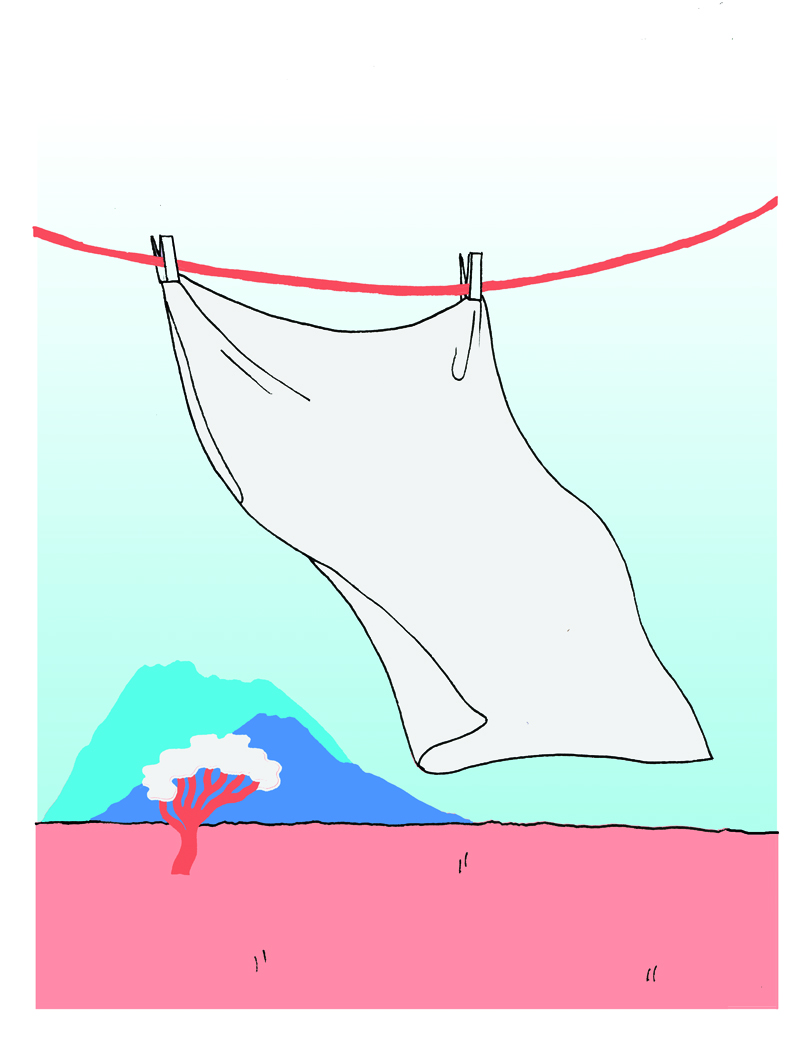Why Canadians should be grateful they don’t have to wash their bed sheets every week
“How often would you say you wash your bed sheets?”
The Canadian interns’ answers: once a week, every two weeks, every month.
Ugandans? Every week.
The distinction was brought up during one of the bi-weekly check-ins for interns living on the compound in Gulu, Uganda, where any frustrations with communal living were aired out and discussed.
There were 11 Canadian and four Ugandan interns living on the compound, which also happened to be our workplace. We slept in huts—six women in one, five in another and the four men in a third. With two beds per bunk, we lived in pretty close quarters. Cleanliness and consideration for others’ space was definitely a recurring issue, especially in the shared common room.
Yet, it came as a surprise for many of us Canadian interns that our Ugandan co-workers were concerned about how often—or rather not often—we washed our bed sheets. Some of us argued that washing sheets was time-consuming, considering everything is washed by hand in Uganda. Others argued that their bed was their own personal space and, therefore, when and how often they washed their bed sheets was of no one else’s concern.
Another argument was Uganda’s frequent and sporadic weather changes. It wasn’t uncommon for it to suddenly rain—sometimes for a few minutes, sometimes all night—in which case our bed sheets would take more than a couple of hours to dry outside.
During a subsequent discussion with just the Canadian interns, however, a different perspective occurred to us. Back home, we have washing machines and dryers for laundry. That alone is a privilege, even in Canada. Laundry becomes less time-consuming. These machines allow us to do our washing without having to worry about weather changes. We get to decide when it’s convenient for us to do laundry.
Back home, we have the technology and the financial resources that not only make doing laundry convenient, but that add a level of comfort and ease to our lives many take for granted. We have a consistent supply of electricity. We have data plans when our Wi-Fi goes out. We have cars to shield us from precipitation when we travel.
This is not to say Ugandans don’t have electricity, Wi-Fi, data plans or cars—but what Canadians call everyday goods are luxury items in Uganda. I should add, though, that Ugandans are doing pretty well, even without our “everyday” goods. Solar panels are used to harness energy, bodas (similar to motorcycles) and bicycles allow people to get around and many Ugandans make do at home without Wi-Fi or data.
Another privilege was pointed out during the interns’ discussion: privacy. Canadians often have the privilege of sleeping in their own room. Even in situations of communal living, such as having roommates or living with family, we often have our own space with our own walls, bed and privacy.
Having a private space gives us the flexibility to wash our sheets at our own discretion. In contrast, Ugandans live not just with their immediate families but their extended families as well. They also have more children on average, meaning more people per household. In these cases, individuals live in closer proximity to one another. This means less privacy, not to mention a greater likelihood of smelling each other’s dirty bed sheets.
In Montreal, bed sheets are simply bed sheets. In Uganda, they were an eye-opening indicator of our privilege back home.
Community, Empowerment, Education, Development—or CEED—is a non-profit organization based in both Montreal and Gulu, Uganda. It works to empower youth to be agents of change in their communities through cross-cultural skills development and information sharing.
Each year, students from Concordia University travel to Uganda and work alongside Ugandan interns on various community projects that aim to benefit the youth of Gulu.
Julie Hoang spent the summer working as the head of social media for the Youth Advocacy and Communications project, which aimed to provide youth in Gulu a platform where they could share their stories of struggle and success.
Graphic by Alexa Hawksworth
